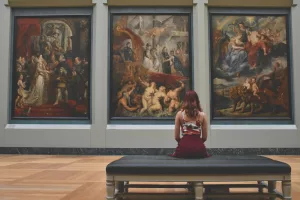Embarking on a journey through origami workshops can be a deeply enriching experience. Whether you’re a seasoned folder or a curious beginner, each destination offers unique insights into the art of paper folding. Let’s dive deeper into these top 14 places, exploring what makes each one special and how you can make the most of your visit. Tokyo, Japan Visiting Tokyo is akin to stepping into the heart of origami itself. The city’s workshops are often led by world-renowned origami masters who are as passionate about teaching as they are about folding. Take, for instance, the famous Origami Kaikan, where you can participate in workshops that range from beginner to advanced levels. Here, you can learn to fold everything from simple cranes to complex tessellations and modular designs.
Practical Tip: When in Tokyo, try to schedule a visit during a local origami exhibition or competition. These events provide not only inspiration but also the opportunity to see stunning works of art and meet like-minded enthusiasts.
Case Study: One participant shared how their experience at Tokyo’s Origami House transformed their understanding of paper folding. They learned the art of wet-folding, a technique that uses dampened paper to create smoother curves and more sculptural forms, which added a new dimension to their creations.
Kyoto, Japan
Kyoto’s allure lies not just in its rich history but also in its dedication to traditional arts, origami being a prominent one. Workshops here are often held in serene settings, such as Zen temples or traditional tatami mat rooms, which enhance the meditative aspect of origami.
Practical Tip: Participate in a workshop that incorporates elements of Japanese culture, such as learning to fold alongside a tea ceremony or while wearing a kimono. This holistic approach can deepen your appreciation for the interconnectedness of Japanese arts.
Common Mistake: Many newcomers rush through folding, eager to see the finished product. In Kyoto, instructors emphasize the importance of patience and mindfulness, encouraging participants to savor each fold as part of the journey.
Paris, France
In Paris, origami workshops are infused with a sense of elegance and innovation. French artists often combine traditional Japanese techniques with avant-garde French art styles, resulting in unique creations.
Practical Tip: Look for workshops that focus on using unconventional materials, such as fabric or metal, to create origami-inspired sculptures. This can open up new avenues for creativity and experimentation.
Example: The renowned studio Origami Paris Art regularly hosts themed workshops that challenge participants to create pieces inspired by French landmarks, like the Eiffel Tower or Notre-Dame Cathedral, using only paper.
New York City, USA
New York City is a melting pot of cultures, and its origami scene is no different. The city’s workshops offer a diverse range of styles and techniques, catering to all levels of expertise.
Practical Tip: Join a meetup group or club dedicated to origami. These gatherings often host guest instructors and provide a supportive community that encourages sharing and collaboration.
Case Study: A participant in a NYC workshop recounted how they learned “kirigami,” a variation of origami that involves cutting the paper as well as folding. This technique allowed for more intricate designs and opened up a new realm of possibilities for their projects.
London, UK
London’s origami workshops blend tradition with modern innovation, reflecting the city’s vibrant cultural tapestry. Many workshops focus on sustainability, teaching participants how to source and use recycled materials for their projects.
Practical Tip: Try attending a workshop that partners with local schools or charities. These sessions often use origami as a tool for education and empowerment, providing a meaningful way to give back to the community.
Common Mistake: Some participants struggle with the precise measurements required for certain models. London instructors often teach techniques to improve accuracy, such as using specialized tools like bone folders and scoring boards.
Hong Kong, China
In Hong Kong, origami is not just an art form; it’s a cultural heritage. Workshops here emphasize the importance of storytelling through paper folding, often inspired by Chinese myths and legends.
Practical Tip: Explore workshops that teach traditional Chinese paper folding, which sometimes incorporates calligraphy or ink painting. This fusion of arts can help you create pieces that are both visually stunning and rich in narrative.
Example: The Hong Kong Origami Society frequently hosts events where participants create large-scale installations for public display, blending community engagement with artistic expression.
Seville, Spain
Seville offers a unique backdrop for origami, with workshops that draw inspiration from the city’s vibrant history and cultural traditions. The colorful and dynamic environment stimulates creativity and encourages exploration.
Practical Tip: Look for workshops that integrate music or dance, such as flamenco, into the folding process. This multisensory approach can enhance your creative flow and result in more dynamic designs.
Case Study: One workshop led by a local artist guided participants through creating paper fans inspired by traditional Spanish motifs, combining origami with Seville’s rich artistic heritage.
Sydney, Australia
Sydney’s origami scene is a reflection of the city’s multiculturalism, blending influences from around the world. Workshops often celebrate this diversity by exploring a range of styles and techniques.
Practical Tip: Attend a workshop that focuses on environmental themes. Sydney’s instructors often use origami to raise awareness about conservation, encouraging participants to use paper sourced from sustainable forestry.
Common Mistake: Beginners sometimes find themselves overwhelmed by complex models. Sydney workshops often teach incremental learning, starting with simple designs and gradually increasing in complexity to build confidence and skill.
Seoul, South Korea
Seoul’s origami workshops offer a deep dive into Korean culture, incorporating traditional motifs such as hanbok (traditional clothing) or the taegeuk (symbol of balance).
Practical Tip: Seek out workshops that offer a historical perspective on Korean paper crafts. This background can provide valuable context and deepen your appreciation for the cultural significance of each fold.
Example: At the Korean Origami Institute, participants learn to create “Hanji” paper crafts—a traditional Korean paper art that complements origami with distinct textures and patterns.
Rio de Janeiro, Brazil
Brazilian origami is characterized by its vibrant colors and dynamic energy, much like the country itself. Workshops in Rio de Janeiro are lively affairs, often featuring collaborations with local artists and musicians.
Practical Tip: Participate in outdoor workshops that embrace the natural beauty of Rio. These settings can inspire organic designs and provide a relaxing environment for creativity.
Case Study: A workshop hosted during Rio’s famous Carnival taught participants to create intricate masks, blending origami with the city’s festive spirit and colorful aesthetics.
Berlin, Germany
Berlin’s origami workshops are known for their experimental approach, often pushing the boundaries of traditional paper folding. The city’s avant-garde spirit is reflected in the innovative techniques and materials used.
Practical Tip: Explore workshops that incorporate technology, such as 3D printing or augmented reality, to enhance your origami projects. This cutting-edge approach can offer new dimensions to your creations.
Common Mistake: Some participants find it challenging to balance precision with creativity. Berlin instructors often emphasize the importance of maintaining a sense of playfulness and experimentation while mastering technical skills.
Auckland, New Zealand
Auckland offers a fresh perspective on origami, inspired by its stunning natural landscapes. Workshops often draw parallels between the shapes and forms of nature and the art of paper folding.
Practical Tip: Look for workshops that encourage the use of natural dyes and fibers in paper making. This eco-friendly approach not only adds a unique touch to your creations but also connects you with the local environment.
Example: A workshop at the Auckland Botanic Gardens focused on creating origami flowers using paper dyed with native plants, blending art with an appreciation for New Zealand’s flora.
Milan, Italy
In Milan, origami is seen as an intersection of art and design, reflecting the city’s reputation as a fashion and design capital. Workshops here often emphasize aesthetics and precision.
Practical Tip: Attend sessions that focus on modular origami, where small pieces are combined to create larger structures. This technique can enhance your understanding of composition and spatial design.
Case Study: A workshop at the Italian Design School challenged participants to create wearable origami pieces, blurring the lines between fashion and traditional paper folding.
Cape Town, South Africa
Cape Town’s origami workshops are a celebration of African creativity, often incorporating indigenous patterns and materials. This fusion of tradition and innovation creates a vibrant and dynamic learning environment.
Practical Tip: Engage in workshops that explore social themes, using origami as a medium for storytelling and cultural exchange. This approach can deepen your understanding of the diverse narratives within South Africa.
Example: A local artist’s workshop focused on creating origami animals inspired by African wildlife, integrating educational elements about conservation and biodiversity.
By exploring these diverse origami workshops around the world, you not only enhance your skills but also gain a deeper appreciation for the cultural richness and creative potential of paper folding. Each destination offers unique insights and experiences, making your journey through the world of origami both enlightening and inspiring.




